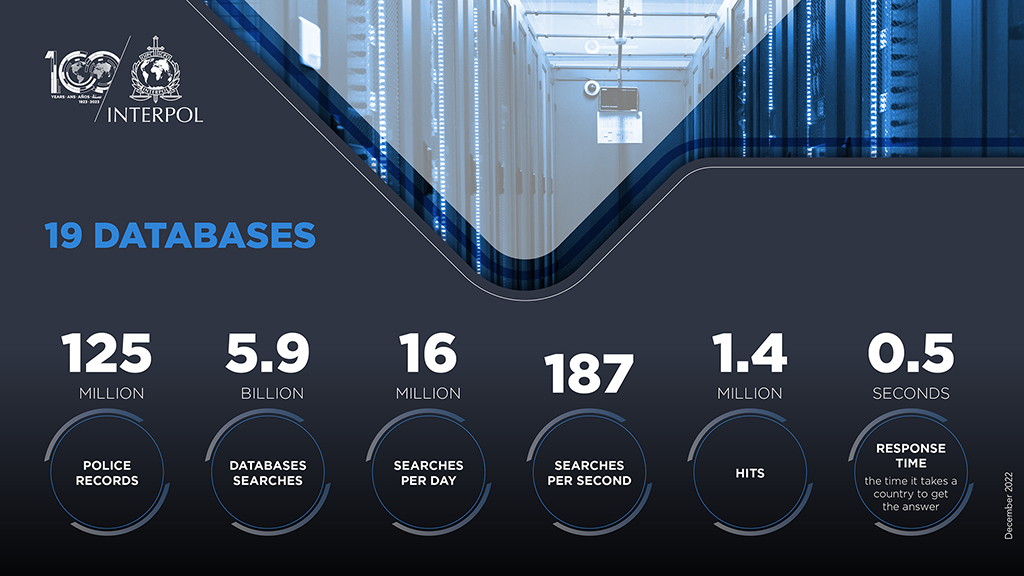Interpol’s Role in Combating Money Laundering
Join us as we delve into Interpol’s dedicated efforts to combat money laundering. Explore their partnerships, capacity building programs, and intelligence-sharing mechanisms that contribute to a safer and more secure global financial environment.
 Written by Erling Andersen
Written by Erling Andersen
Welcome to our comprehensive guide on the crucial role played by Interpol in combating money laundering activities. As a global organization promoting international police cooperation, Interpol plays a vital role in facilitating collaboration among law enforcement agencies worldwide to combat the complex issue of money laundering. This article will delve into Interpol’s efforts, initiatives, and partnerships in the fight against money laundering. By the end of this guide, you will have a deep understanding of Interpol’s role in combating this global threat.
Understanding Money Laundering
Money laundering is a criminal activity that involves the process of making illicitly obtained funds appear legitimate. It is a crucial enabler for various criminal enterprises, including drug trafficking, terrorism financing, corruption, and organized crime. Money laundering consists of three main stages: placement, layering, and integration. Criminals aim to introduce illegal funds into the financial system, obscure their origin through complex transactions, and integrate the laundered money with legitimate assets.
Interpol’s Mandate and Objectives
Interpol, short for the International Criminal Police Organization, is an intergovernmental organization that serves as a central hub for international police cooperation. Its primary mandate is to facilitate collaboration among law enforcement agencies from member countries, promoting the exchange of information, intelligence, and best practices to combat various transnational crimes, including money laundering.
The objectives in tackling money laundering are multifaceted. The organization aims to enhance global cooperation among law enforcement agencies, develop and disseminate specialized knowledge and tools, provide training and capacity building, and support investigations targeting money laundering networks. Interpol recognizes that tackling money laundering requires a comprehensive and collaborative approach involving law enforcement agencies, financial institutions, and other relevant stakeholders.
Interpol’s Initiatives and Tools
Several initiatives and tools have been developed to support member countries in combatting money laundering effectively. These initiatives focus on information sharing, capacity building, and operational support. Let’s explore some of the key initiatives undertaken by Interpol:
Global Focal Point Network (GFPN)
The Global Focal Point Network is a crucial mechanism established by Interpol to facilitate the exchange of information and intelligence related to money laundering and other financial crimes. It serves as a platform for member countries to connect, share expertise, and coordinate joint operations against money laundering networks. The GFPN enhances international cooperation and strengthens the collective response to money laundering.
Financial Crimes Unit (FCU)
Interpol’s Financial Crimes Unit is pivotal in combating money laundering and related financial crimes. The unit supports member countries by providing specialized expertise, conducting research and analysis, and developing innovative strategies to counter money laundering networks. The FCU also assists in identifying emerging trends and typologies in money laundering, enabling proactive measures to be implemented.
I-24/7 Secure Global Police Communications System
The I-24/7 system is a secure global police communications platform that enables member countries to share real-time information on criminal activities, including money laundering. This system facilitates the swift and safe exchange of intelligence, alerts, and operational data among law enforcement agencies. It strengthens the ability of member countries to collaborate and respond effectively to emerging money laundering threats.
Training and Capacity Building
Places great emphasis on training and capacity-building programs to enhance the knowledge and skills of law enforcement personnel in combating money laundering. These programs cover various topics, including financial investigations, intelligence analysis, asset recovery, and the use of advanced technologies in combating money laundering. Interpol contributes to building a capable global network against money laundering by equipping law enforcement agencies with the necessary expertise.
Interpol’s Partnerships
Interpol recognizes the importance of partnerships in combating money laundering effectively. The organization collaborates with various stakeholders, including financial institutions, regulatory bodies, and international organizations, to strengthen the global response to this transnational crime. Some of the key partnerships include:
Financial Action Task Force (FATF)
Interpol works closely with the Financial Action Task Force. This intergovernmental body sets standards and promotes the effective implementation of legal, regulatory, and operational measures to combat money laundering and terrorist financing. Through this partnership, Interpol contributes to developing and disseminating global AML/CFT standards and assists member countries in their implementation.
Egmont Group of Financial Intelligence Units
Interpol collaborates with the Egmont Group, a global network of financial intelligence units (FIUs), to facilitate the exchange of financial intelligence related to money laundering. This partnership enhances information sharing on suspicious transactions and supports the identification of money laundering networks.
Public-Private Partnerships
Interpol recognizes the vital role the private sector plays in combating money laundering. The organization engages in public-private partnerships with financial institutions, technology companies, and other relevant industries to promote information sharing, develop innovative solutions, and enhance the detection and prevention of money laundering activities.
Interpol’s Role in AML Data and Intelligence Sharing
One of the critical pillars of Interpol’s effectiveness in combating money laundering is its role in facilitating the sharing of AML data and intelligence among member countries. Interpol recognizes the importance of timely and accurate information in identifying money laundering networks, detecting suspicious transactions, and coordinating international investigations. Let’s explore Interpol’s initiatives and tools related to AML data and intelligence sharing.
Interpol’s AML Database
Interpol maintains a comprehensive AML database that serves as a central repository of information related to money laundering activities. This database includes data on known money laundering networks, suspicious individuals and entities, and emerging trends and typologies in money laundering. Member countries can access this database to obtain valuable intelligence and insights to aid their AML investigations and preventive measures.
Information Exchange Mechanisms
They facilitate the exchange of AML information among member countries through various mechanisms. These include secure communication channels, such as the I-24/7 system, which enables real-time information sharing on suspicious transactions, money laundering methods, and related investigations. Interpol also organizes regular meetings, conferences, and working groups where AML professionals can collaborate and exchange knowledge and best practices.
Operational Support and Analysis
They have multiple AML initiatives that ves go beyond information sharing. The organization provides operational support to member countries in conducting joint investigations and operations targeting money laundering networks. Interpol’s specialized units, such as the Financial Crimes Unit, offer analytical expertise and assist in analyzing complex financial transactions and networks. This operational support enhances the effectiveness of member countries’ efforts in combating money laundering.
Collaborative Projects and Research
Moreover, they engage in collaborative projects and research to advance the understanding of money laundering and develop innovative approaches to its detection and prevention. These projects involve partnerships with academia, research institutions, and industry experts. By leveraging collective expertise, Interpol contributes to developing cutting-edge tools, techniques, and methodologies for combating money laundering.
International Cooperation and Liaison Officers (ICOs)
Interpol deploys International Cooperation and Liaison Officers (ICOs) to member countries, facilitating direct collaboration and information exchange at the national level. ICOs bridge Interpol and member countries’ law enforcement agencies, ensuring seamless cooperation and coordination in AML efforts. These officers play a crucial role in facilitating the sharing of AML data and intelligence between Interpol and national authorities.
Final Thoughts
Interpol’s efforts in combating money laundering are invaluable in the global fight against financial crime. Through its initiatives, tools, and partnerships, Interpol strengthens international cooperation, enhances the capacity of law enforcement agencies, and promotes the exchange of information and best practices. As an AML professional, it is crucial to stay updated on Interpol’s initiatives and leverage their resources to combat money laundering activities effectively. We can create a safer and more secure financial environment worldwide by working together.
Unleash the Power of AML Data with Kyros AML Data Suite
In the ever-evolving landscape of combating money laundering, leveraging advanced technologies is paramount to staying ahead of sophisticated criminal networks. That’s where Kyros AML Data Suite comes in. Seamlessly integrating with the efforts of organizations like Interpol, Kyros AML Data Suite offers a comprehensive solution to enhance your anti-money laundering capabilities.
Discover the Strength of Kyros AML Data Suite
Unlock the full potential of your AML investigations with Kyros AML Data Suite’s advanced data analytics capabilities. Harness the power of cutting-edge algorithms and machine learning to identify complex patterns, detect suspicious transactions, and uncover hidden connections within vast financial data. Make informed decisions, prioritize investigations, and swiftly act against money laundering.
Real-Time Risk Monitoring
Stay one step ahead of money launderers with Kyros AML Data Suite’s real-time risk monitoring. Monitor transactions, customer behavior, and emerging trends to detect potential risks and anomalies. Receive alerts and actionable insights to proactively address potential money laundering threats, strengthening your defenses and safeguarding your institution’s integrity.
Enhanced Compliance and Reporting
Ensure regulatory compliance effortlessly with Kyros AML Data Suite’s robust compliance and reporting features. Simplify the process of generating comprehensive reports, filing suspicious activity reports (SARs), and adhering to regulatory requirements. Kyros AML Data Suite empowers you to streamline compliance procedures and demonstrate your commitment to combating money laundering.
Take the Next Step – Book a Demo
Ready to revolutionize your AML efforts and strengthen your defense against money laundering? Book a demo of Kyros AML Data Suite today and witness firsthand how it can transform how you tackle financial crime. Visit our website at Kyros AML Data Suite Demo to schedule your personalized demonstration and explore the potential of advanced AML analytics.
FAQ
What is the role of Interpol in combating money laundering?
Interpol is crucial in combating money laundering by facilitating international police cooperation, promoting information sharing, and coordinating joint operations. The organization develops initiatives, tools, and partnerships to enhance the capacity of member countries in detecting, investigating, and preventing money laundering activities. Interpol also maintains a comprehensive AML database, provides operational support, and conducts research to stay ahead of evolving money laundering techniques.
How does Interpol support AML professionals in their efforts?
Interpol supports AML professionals by providing access to a wealth of AML data and intelligence through its databases and information exchange mechanisms. AML professionals can leverage Interpol’s resources to obtain valuable insights, identify emerging trends, and enhance their understanding of money laundering methods. Interpol also offers training programs, capacity-building initiatives, and collaborative projects to equip AML professionals with the necessary knowledge and skills to combat money laundering effectively.
How can AML professionals collaborate with Interpol?
AML professionals can collaborate with Interpol through various channels. They can actively participate in Interpol-led working groups, conferences, and meetings to share experiences, best practices, and challenges in combating money laundering. AML professionals can also contribute to Interpol’s research projects and initiatives, providing expertise and insights. Additionally, AML professionals can establish connections with Interpol’s International Cooperation and Liaison Officers (ICOs) deployed in their respective countries to facilitate direct collaboration and information exchange.
Can Kyros AML Data Suite integrate with existing AML systems used by law enforcement agencies, including Interpol?
Yes, Kyros AML Data Suite is designed to seamlessly integrate with various AML systems, including those used by law enforcement agencies like Interpol. Its flexible architecture allows easy data exchange, ensuring interoperability and collaboration across multiple platforms.
Does Kyros AML Data Suite comply with international AML regulations and data privacy standards?
Absolutely. Kyros AML Data Suite is built with a strong focus on compliance with international AML regulations and stringent data privacy standards. We prioritize data security, confidentiality, and regulatory compliance to ensure that your AML operations are conducted securely and compliant.
Share article on
